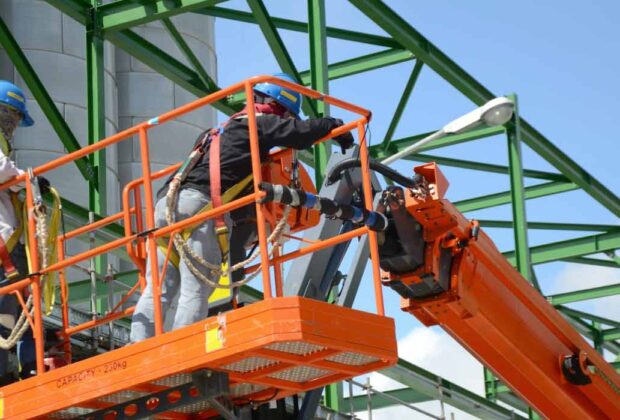Recreational cannabis legalization within Canada in 2018 left many employers with questions regarding implementing a successful cannabis policy.
The legalization of recreational cannabis doesn’t affect the way in which employers handle drug and alcohol testing within Canada. However, it can be difficult to determine the correlation between the amount of cannabis a person has in their system and their impairment level.
Although cannabis is no longer an illegal substance, employers are still able to implement drug policies which outline an employee’s responsibilities within the workplace in regard to impairment and drug use.
Danatec by Yardstick Training is proud to provide industry-leading cannabis workplace safety training for employers and employees to ensure all Canadian workplaces implement safety policies which benefit all parties involved.
Cannabis Legalization
Recreational cannabis was legalized across Canada on Oct. 17, 2018. The legalization allowed for an of-age individual to have up to 30 grams of legal cannabis, purchase cannabis from a licensed retailer, grow up to four cannabis plants of their own, and share up to 30 grams of cannabis with another of-age person.
Although legal across Canada, cannabis possession laws vary by province. As well, every employer may still implement and determine the best course of action for drug policies which outline an employee’s responsibility to be fit for work.
A zero-tolerance program may still be implemented by an employer, with this decision based off the corresponding responsibilities and safety requirements of the employees within the organization.
Analyzing Safety and Risk
Drug policies within a workplace are influenced by the risk of safety within the workplace being impacted by an employee’s impairment.
Cannabis consumption may affect an individual’s judgement, reaction time and critical thinking skills. Positions with higher safety requirements may require employers to implement more intensive cannabis policies than those positions which are not as safety intensive.
Safety measures and risk management measures within the workplace are the two most important factors when it comes to an employer’s decision to implement any drug policy – including a cannabis policy.
Safety measures reduce harm if an unwanted event takes place. A seatbelt is an example of a safety measure, it minimizes injury if an accident occurs but does nothing to prevent the accident from occurring. Hard hats are another example of a safety measure in the workplace.
A risk management measure reduces the risk of an accident from occurring. A tie-off to secure tools being used at height is an example of a risk management measure, as it works to prevent an incident from happening.
In addition to safety measures and risk management measures, employers should also consider impairment management measures – impairment differs from intoxication, and may range from an individual impaired slightly from a lack of sleep, to someone who has used cannabis recently and is still impaired, impacting the safety of the work they are doing.
Impairment management maintains impairment at an acceptable level. What level is acceptable depends on several factors:
- Task: Different tasks require different levels of attention, focus and care.
- Harm: How much harm will an error cause?
- Remedy: How difficult would it be to remedy or restore conditions to a desired state?
- Measurability: Some levels of impairment – such as alcohol or cannabis, can be directly measured to determine the threat of harm they present.
Legality and Testing
As an employer in Canada, there is a 3-step test for legal requirement of impairment testing.
The Supreme Court of Canada has ruled that an employer’s right to set a standard for impairment depends on the work task meeting three requirements: Rational purpose, good faith, reasonably necessary.
If an employer is unable to meet all three requirements, they may not be able to impose an impairment standard in the workplace.
Each employer must design and properly implement a safety plan which outlines the risk of danger, expectations of employees and the policies which govern employees use of alcohol, cannabis and any other drug – including prescription medications, within the workplace.
A well-written cannabis safety plan must clearly outline what is expected of employees when they are working, and also the repercussions if an employee is found to be in violation of the drug policy.
Implementing Policies in the Workplace
Policy and program language should refer to reducing risk and the risk of cannabis impairment within the workplace but should not be described as unlawful or illicit.
Drug testing should be restricted to positions which are safety sensitive only. Employers should clearly outline their reasons for testing, what drugs will be tested for, and the cut-off thresholds for drug testing.
Only breath, oral fluids and urine are legally accepted sample specimens for drug testing within Canada. An employer’s cannabis safety policy should clearly outline these tests and should be part of an overall safety program which states the disciplinary consequences of policy violations.
Employers also maintain the right to conduct pre-employment drug testing. In the case that a potential employee tests positive for a drug and is deemed to have some form of addiction, the employer must consider human rights legislation as an addition can be classified and considered as an addiction and the employer may be required to accommodate that employee.
A safe and effective overall drug policy and cannabis policy requires employers to measure both their rights and an employee’s right to cannabis consumption. Employers must understand and properly implement drug policies which not only serve to protect the workplace from possibly safety issues, but also protect employees and their rights.
Need to Implement a Cannabis Policy Into Your Workplace?
Find out how Danatec by Yardstick Training can help you.



Comments are closed.